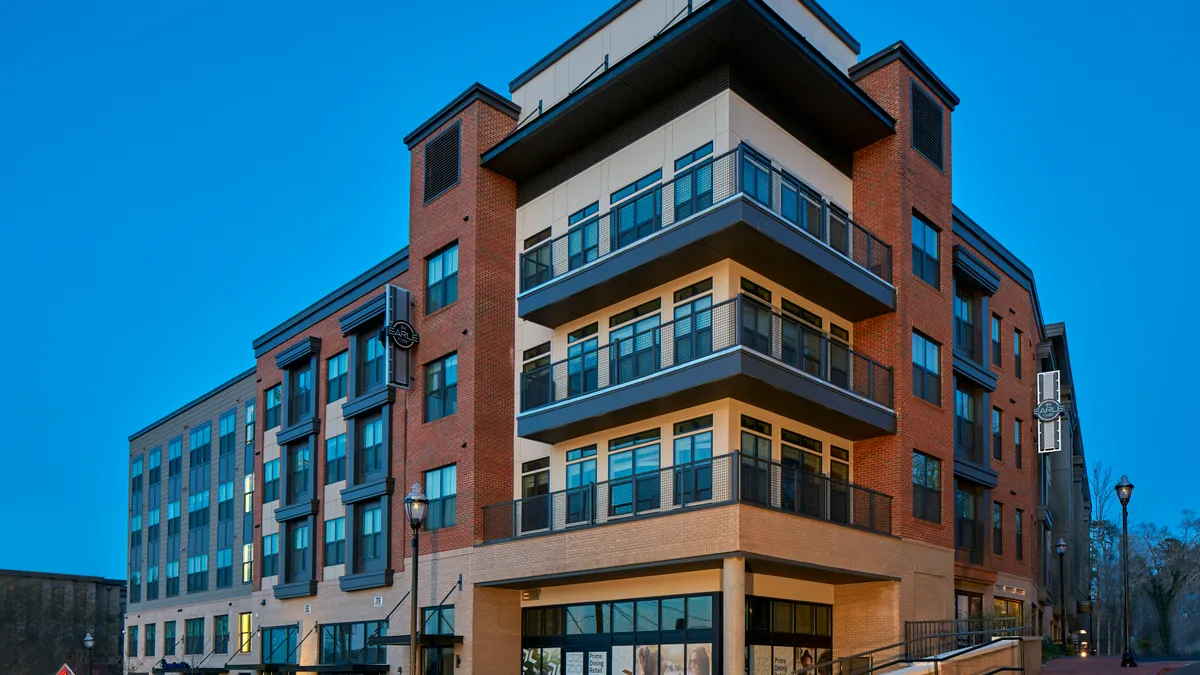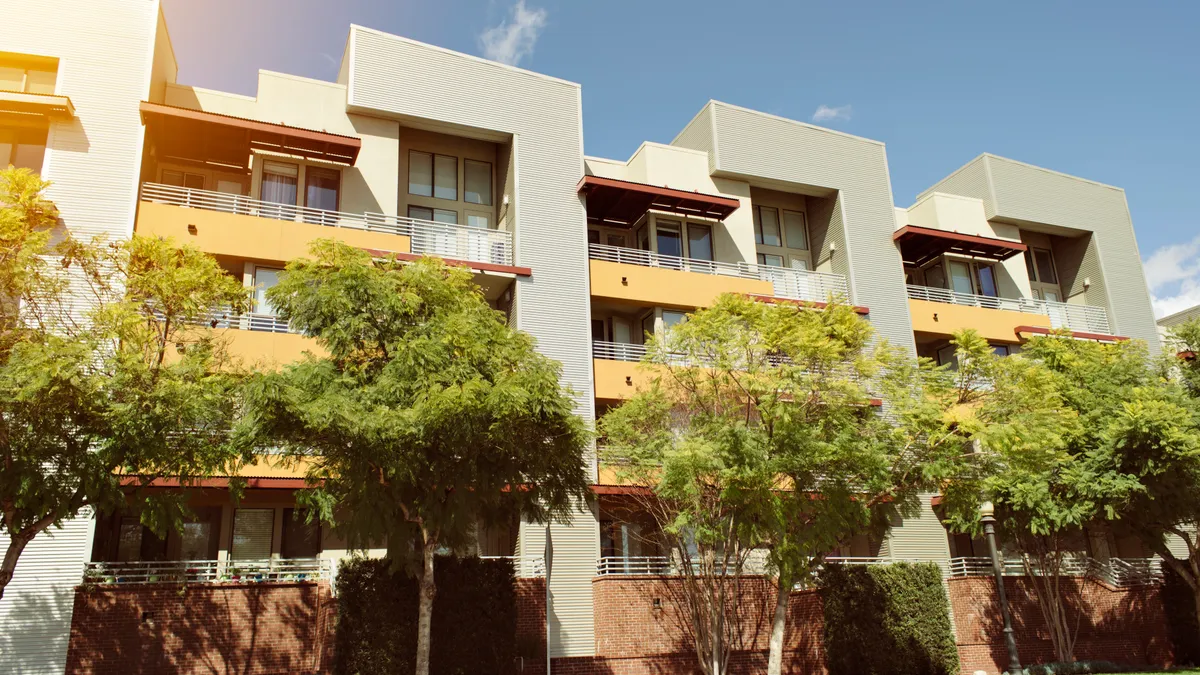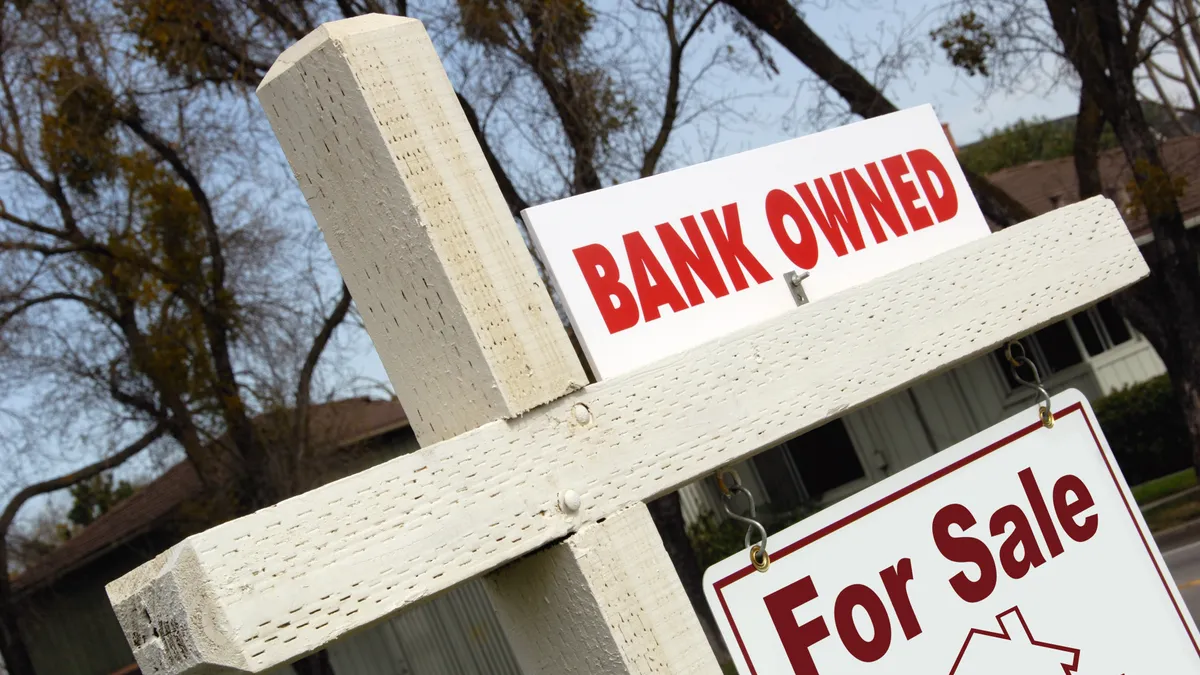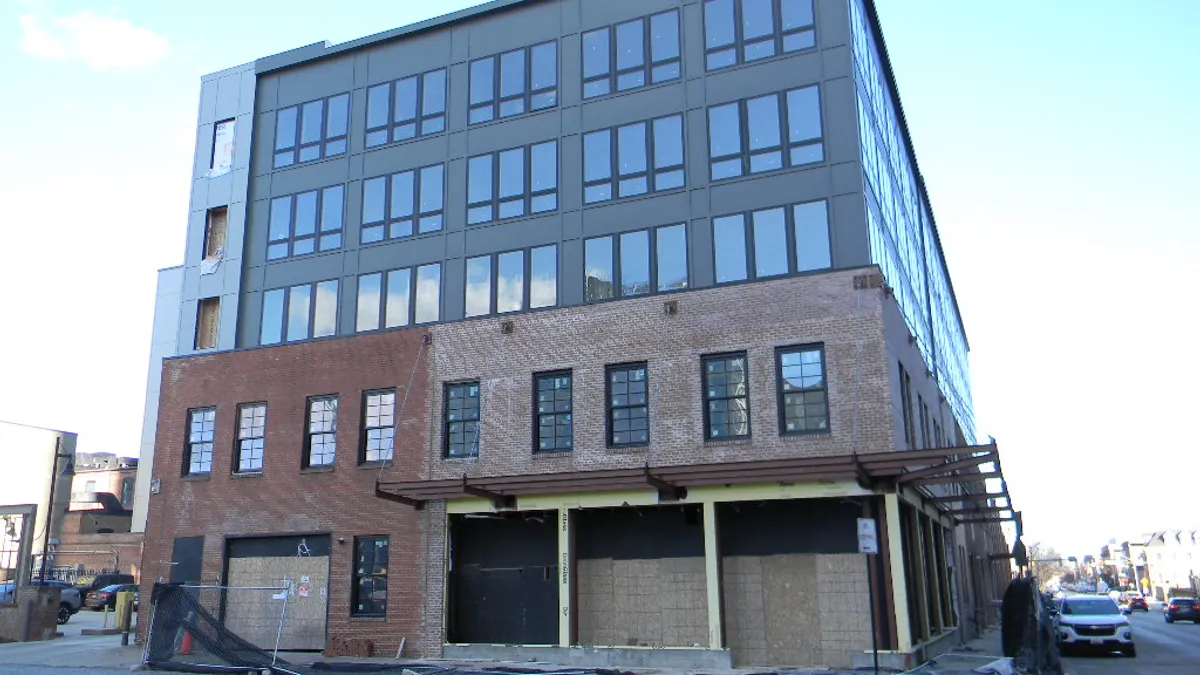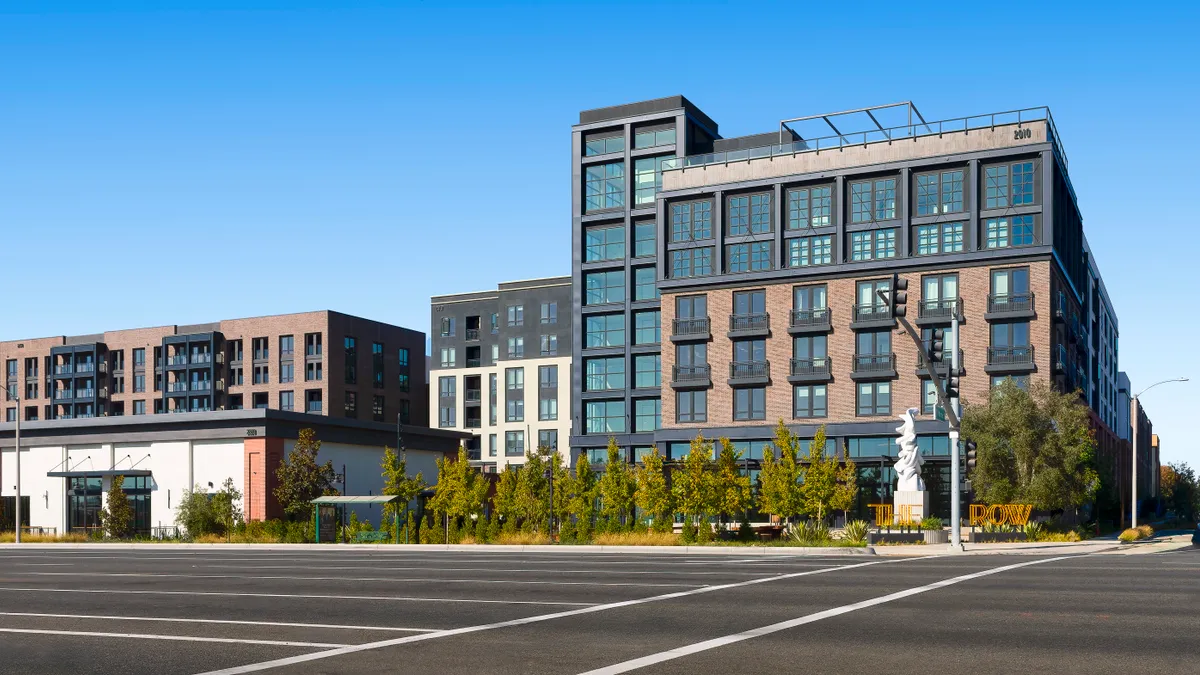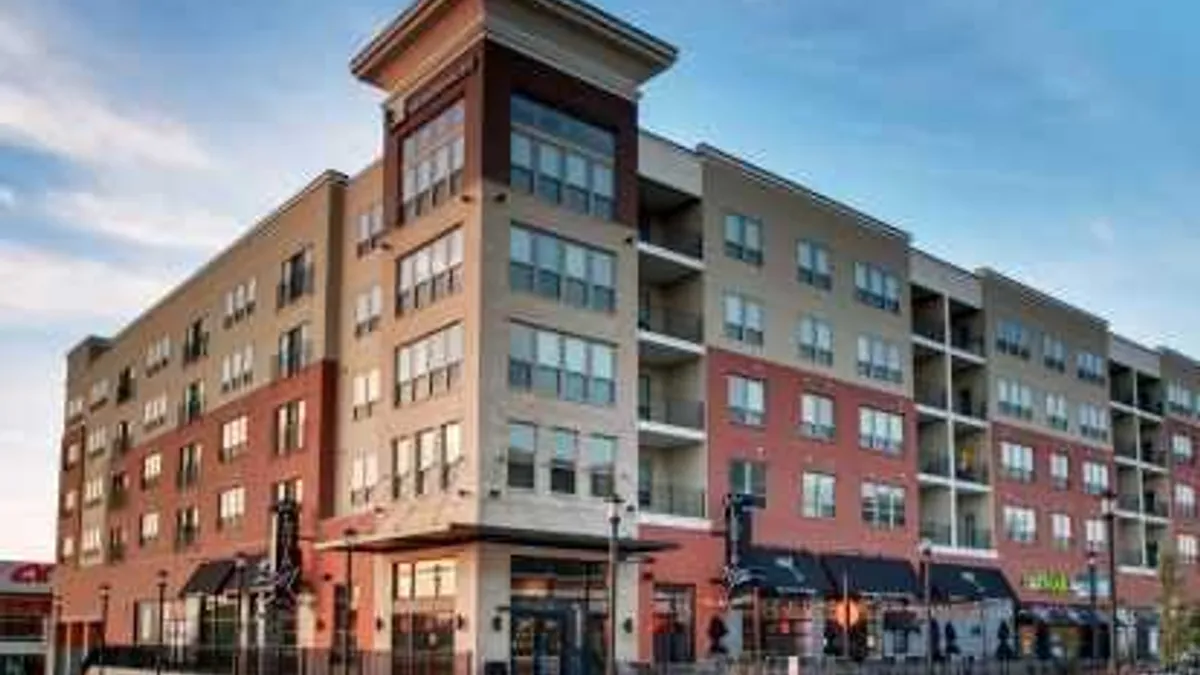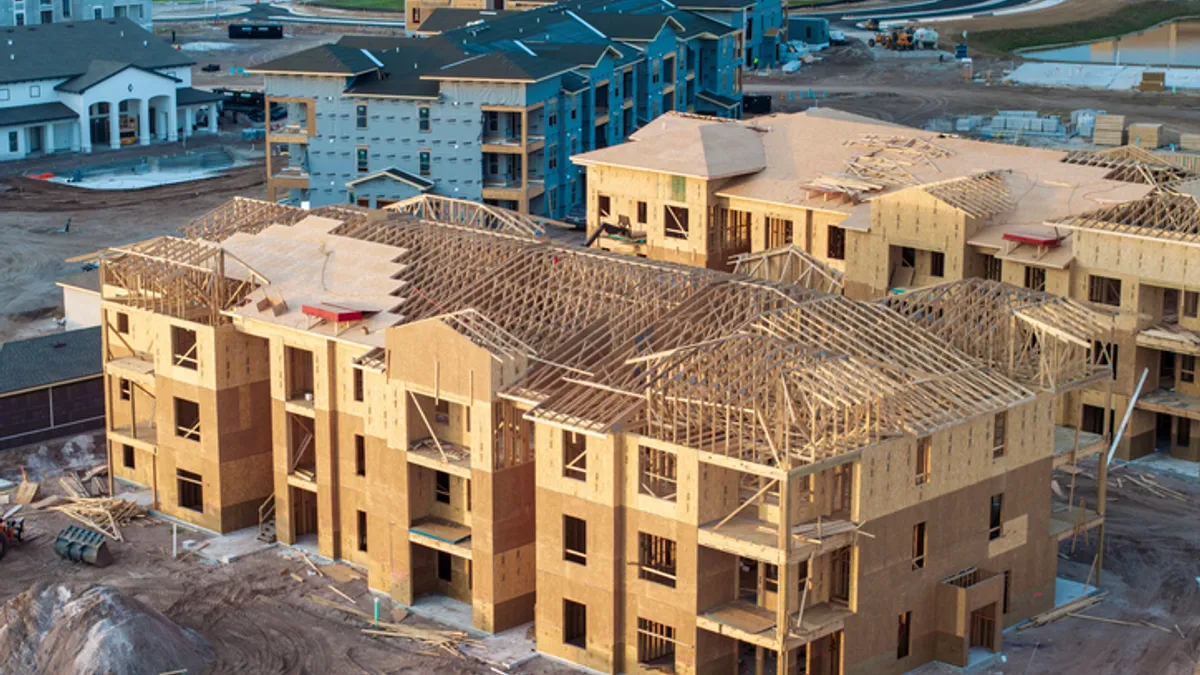Despite the challenging sales environment in 2022, Philadelphia-based student housing company Campus Apartments closed over $650 million in transactions.
Selling in 2022 wasn’t for the faint of heart. Early in the year, there were “huge amounts of bidders,” according to Andrew Roth, vice president of investments at Campus.
“When we launched our portfolio in September, there was a tremendous amount of interest,” Roth told Multifamily Dive. “By late October and November, the depth of that buyer pool had changed. That being said, the bidders who stayed in the race remained very aggressive, and it resulted in a very competitive process. We ultimately felt really good about where things landed.”
Originally, Campus contemplated taking the portfolio to market in 2020 but changed course in light of the COVID-19 pandemic. “It didn’t make sense to be selling when no one was buying,” Roth said.
All of the assets were developed by Campus, except for one. “We were really confident in the rent growth that we’d be able to achieve in our preleasing, and felt that it would largely offset the impact of rising interest rates,” Roth said. “In the end, we actually outperformed our expectations – over 16% rent growth and nearly fully leased for next year. So for us, it was the right time to harvest, and it now allows our investors to recycle their capital at a time when there should be some pretty attractive buying opportunities.”
Here, Roth talks with Multifamily Dive about the buyers still active on the market, whether some owners will face financial pressures and student housing’s advantages in a recession.
This interview has been edited for brevity and clarity.
MULTIFAMILY DIVE: What buyers stayed in the game even after the interest rate increases?
Firms that do not have discretionary capital or firms that are raising equity on a deal-by-deal basis were impacted a bit more by both interest rates and return expectations. Those players, not all of them but some of them, were the ones who ended up sitting out.

Whereas other firms that are like us, either in a fund structure where the capital has been raised already and the return parameters are set in stone, or firms that have fully discretionary capital where they don't have to worry about getting in front of the investment committee, are remaining aggressive. Those are things that we view as competitive advantages in a climate like this, where there is uncertainty in the capital markets — both the debt markets and the equity markets.
Is Campus also pursuing deals?
We're out there. We were always pretty selective when it came to underwriting deals. But when we do chase a deal, we feel like we can get pretty aggressive based on the way our equity is structured and the fact that we do have fully discretionary capital.
We bought one deal in 2022. We have another deal that we're pursuing right now. If you're choosing your spots, there are probably some good deals to be had. At the same time, we've seen some sellers pull back due to the perceived bid-ask spread.
Will some owners be forced to sell?
Potentially. On the debt side, say you’ve got a floating rate loan that’s eating into your cash flow, and you’re making significant payments towards an interest rate cap, maybe you’d prefer to refi, but can’t get the proceeds where they used to be. Maybe now you’re thinking you might want to sell.
But on the positive side, the fundamentals in the student housing industry have never been stronger, and that has translated to some really impressive results. Obviously, this will vary by asset, but there has been some really, really strong asset-level performance that, for us,was able to offset the rising interest rates.
If you think about conventional in the last year with explosive rent growth numbers throughout much of the country that are grabbing headlines, student housing didn’t have that initially because they lease almost a full year in advance. When you think about the fall 2022 academic year, those leases, in many cases, were signed back in August or September of 2021. So in 2021, when inflation really took off and was driving rent growth in conventional, a lot of student housing players had their hands tied. They had already fully leased for the next year.
Did the industry take advantage of that opportunity in the next leasing cycle?
For us, the leasing for 2023-2024, which began in fall 2022, was our first bite of the apple in this new high-inflationary environment. We saw rent growth that crushed our previous portfolio highs. Yes, interest rates rose, but we actually intentionally delayed the launch of our portfolio because we thought we were going to get great rent growth. We wanted to give ourselves time to prove it out. And we ultimately did.
I do think that is kind of a saving grace throughout the industry. The debt situation may not be ideal, but in many cases, the property level performance is good enough to counteract that.
Do you see student housing as a hedge against recessions?
That was definitely the case during the Great Recession. Throughout COVID, people were shocked by how strong the occupancy and collections were across the sector. The delinquency rate was much lower than it was in conventional apartments during COVID. So yes, student housing, historically, has proved resilient during recessions.
Click here to sign up to receive multifamily and apartment news like this article in your inbox every weekday.



